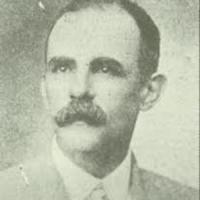Glory is smoke (trans.)
"La gloria es humo" from Patria (Fatherland) by Virgilio Dávila[1]
Glory is so much smoke, you dissidents!
Glory is smoke, indeed!
Yet when I gaze upon the cloud of smoke
Spiraling endlessly
And rising around all those who were
The honor of my country...
I don’t know why! Perhaps a whim of mine....
A childish hope maybe,....
But I would like to reach
That smoke-filled glory for me!
1892.
[1] In the original, lines 2, 4, 6, 8, and 10 all rhyme, but the rhyme is assonant (only the vowels have to rhyme, not the consonants). I tried to reproduce this effect through the repetition of vowel sounds with different stresses and lengths (indeed, endlessly, country, maybe) while ending with a monosyllabic “me” to drive the assonance home and echo the “mí” at the end of the original poem. Dávila plays off the tension between traditional formal elements (such as end rhyme) and a more prosaic tone and unadorned language that challenge the reader. I tried to foreground this tone by making explicit the address in line 1 (“you dissidents”) and by playing with meter: I start with a more conventional alternation between pentameter and tetrameter but then loosen the meter toward the end to make room for the informality and even intimacy of the confession that concludes the poem. One challenge I faced was translating the word humo, since Dávila is using it both in its literal sense (smoke) and in a figurative sense to reflect on how glory amounts to nothing. I use “so much smoke” in line 1 to convey this sense of humo as the insubstantial.
La gloria es humo
Humo la Gloria es, gente inconforme!
¡La Gloria es humo! ¡sí!
¡Mas yo, cuando contemplo la humareda
Que en espirales mil
Se levanta alrededor de los que fueron
Honra de mi país…
¡No sé por qué! Será capricho mío…
Aspiración pueril….
¡Pero alcanzar quisiera
Esa gloria de humo para mí!
1892

